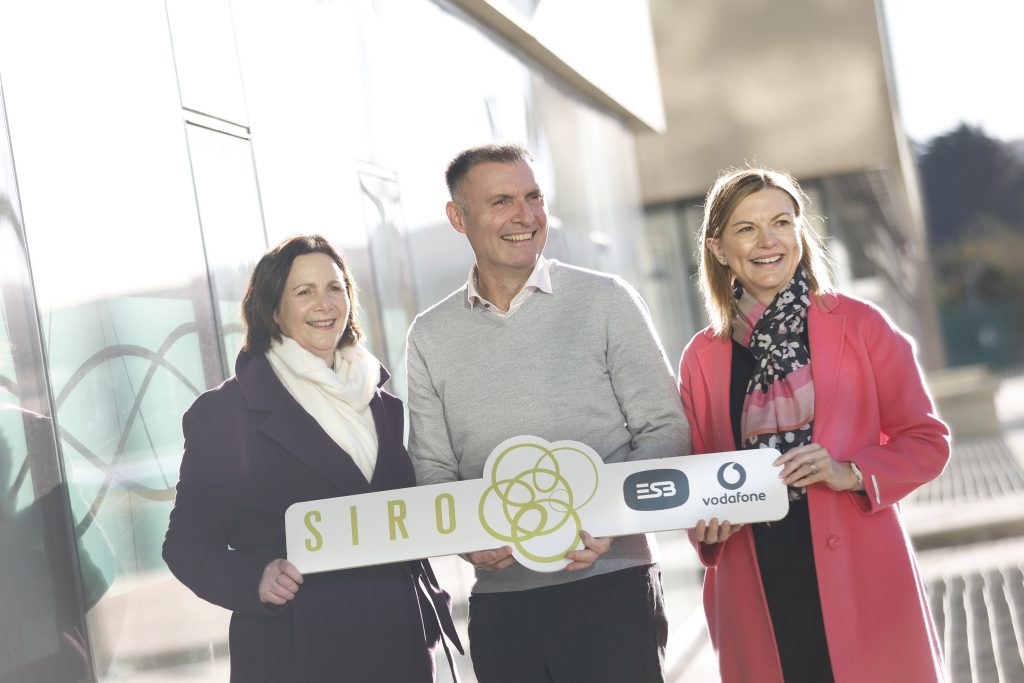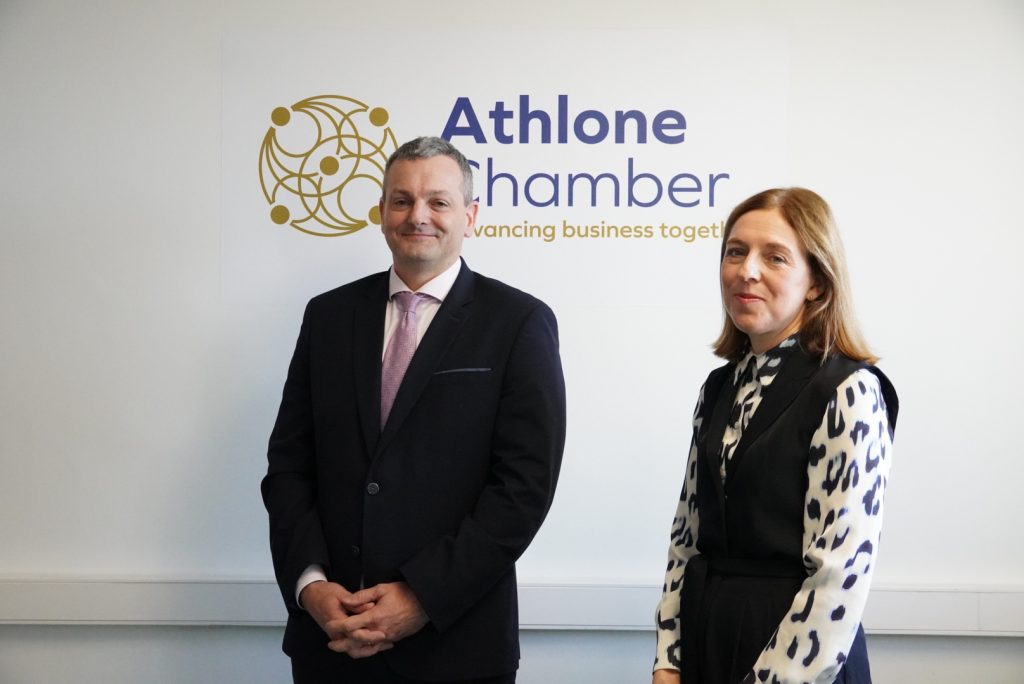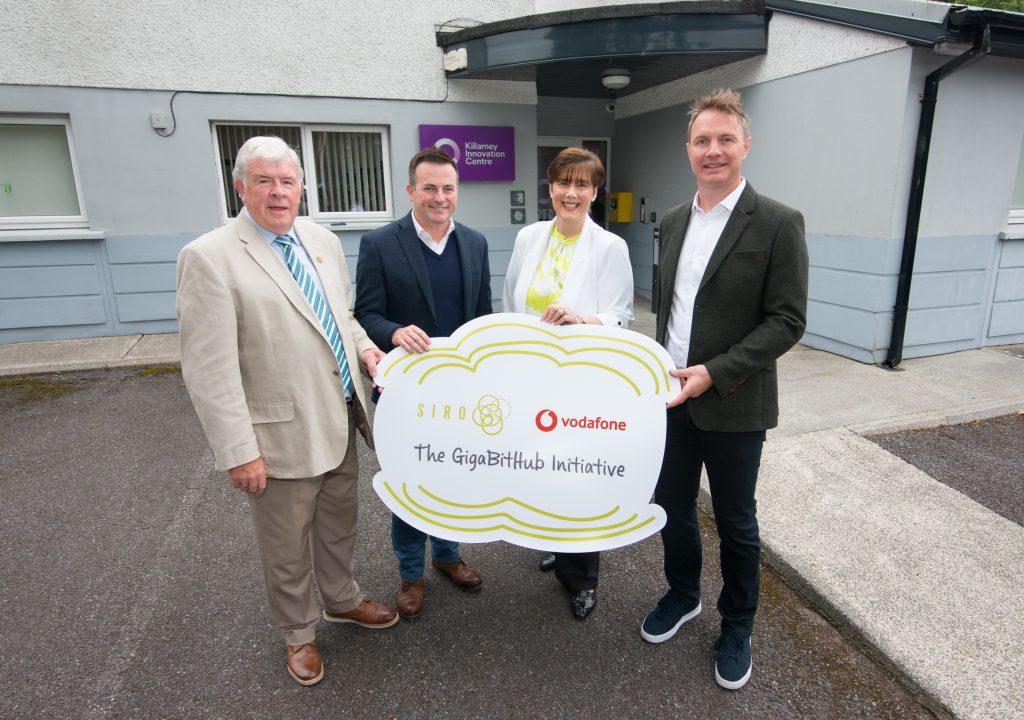
In honour of World Mental Health Day, it’s important to remember that mental health support can take many forms. With many resources available online, help is now more readily available. Whether it’s connecting with a therapist, joining a virtual support group, or using meditation apps to manage stress, a variety of digital tools exist to help people maintain and improve their mental well-being. This is a snapshot of some Irish online resources worth looking at.
Teletherapy Services
Teletherapy has become a vital tool in mental health care, providing convenient access to professional support from the comfort of home. Many Irish services offer teletherapy, allowing individuals to connect with licensed therapists through secure video calls.
-
MyMind offers affordable online counselling services in Ireland, with qualified professionals available in multiple languages. This service is designed for accessibility, making it easier for people to seek help without long wait times.
-
Turn2Me is a free online counselling service offering support for mental health, including one-on-one therapy, group sessions, and mental health workshops.
Meditation and Mindfulness Apps
Practicing mindfulness and meditation can greatly improve mental well-being, helping to manage stress, improve sleep, and promote a sense of calm. Some of the most popular meditation apps available in Ireland include:
-
Headspace: This well-known meditation app offers a wide variety of guided meditations, mindfulness exercises, and sleep aids.
-
Calm: Another popular meditation app, Calm offers meditation guides, breathing exercises, and relaxing music to help reduce anxiety and improve mental clarity.

Mental Health Podcasts
Podcasts are a growing source of mental health education and support. Listening to expert advice or hearing from people with lived experiences can provide valuable insights into managing mental health challenges. Some top mental health podcasts available in Ireland include:
Where Is My Mind?: Hosted by Niall Breslin (Bressie), this Irish podcast focuses on mental health, mindfulness, and navigating modern life. It offers interviews with mental health professionals and insights into personal growth.
Let’s Talk About Mental Health podcast: Hosted by Jeremy Godwin, this podcast simplifies mental health topics with practical, research-based tips for improving well-being. It offers actionable advice that listeners can immediately apply to their lives.
Online Support Groups
Sometimes, knowing you are not alone can make all the difference. Online support groups provide a safe space to share experiences, seek advice, and find community. In Ireland, some mental health support groups include:
-
Aware Online Support Groups: Aware offers virtual support groups for individuals affected by depression, bipolar disorder, and related mental health issues. These weekly groups are free and provide a space to connect with others facing similar challenges.
-
Jigsaw Live Chat: Jigsaw offers a free, confidential online chat service for young people aged 12-25. It’s a great resource for those seeking immediate support or advice in managing their mental health.
-
Growth Mental Health Support Groups: Whether diagnosed with a mental health challenge or struggling to cope with life’s difficulties, Growth Mental Health Support Groups offer a confidential, supportive environment to connect with others. These groups are free, open to everyone, and foster a sense of community among individuals with shared experiences.
With so many online resources available in Ireland, finding support for your mental well-being is easier than ever. Whether you prefer teletherapy, mindfulness practices, or connecting with others through support groups, there are numerous ways to access help digitally. Find further resources at the
HSE Mental Health Services
If you or someone you know are experiencing mental health issues, please contact:
www.samaritans.org or 116 123.
 On Safer Internet Day 2025, SIRO’s CTO, Suzanne Tracy’s guide serves as a timely resource for parents to proactively educate and empower their children, ensuring a safer and more enjoyable online experience.
Recent data highlights that 95% of Irish children aged 8-12 own their own smart device. This research, conducted by the charity CyberSafeKids, also notes how 87% of children have their own social media account.
Using devices and tapping into the wealth of resources which access to online platforms can provide can be hugely positive for kids. Helping with their schoolwork, staying connected to friends, entertainment and recreational tools are all the positives that technology brings.
However, as much as we want children to be able to avail of the opportunities for learning and enjoyment that technology can deliver, parents, educators and society also have a responsibility to help them stay safe online.
Studies by SafeWise show that more than 58% of parents say their child’s internet behaviours are a cause of concern for them.
Naturally, parents have concerns. Rather than be an anxious but passive parent, a quick crash course in some basic and easy to implement tools, can be effective in keeping our kids safer online.
On Safer Internet Day 2025, SIRO’s CTO, Suzanne Tracy’s guide serves as a timely resource for parents to proactively educate and empower their children, ensuring a safer and more enjoyable online experience.
Recent data highlights that 95% of Irish children aged 8-12 own their own smart device. This research, conducted by the charity CyberSafeKids, also notes how 87% of children have their own social media account.
Using devices and tapping into the wealth of resources which access to online platforms can provide can be hugely positive for kids. Helping with their schoolwork, staying connected to friends, entertainment and recreational tools are all the positives that technology brings.
However, as much as we want children to be able to avail of the opportunities for learning and enjoyment that technology can deliver, parents, educators and society also have a responsibility to help them stay safe online.
Studies by SafeWise show that more than 58% of parents say their child’s internet behaviours are a cause of concern for them.
Naturally, parents have concerns. Rather than be an anxious but passive parent, a quick crash course in some basic and easy to implement tools, can be effective in keeping our kids safer online.





 Pictured at the announcement are SIRO Chief Executive Officer John Keaney; Vodafone Ireland CEO Amanda Nelson (RIGHT) and ESB Deputy Chief Executive Marguerite Sayers (LEFT).[/caption]
The significant expansion of SIRO’s network now means it has grown to become the second largest full fibre broadband network in the Irish market.
SIRO currently offers speeds of up to 2 Gigabits for residential customers and up to 10 Gigabits for enterprise, but its network has the capacity to scale to 25 Gigabits when required.
SIRO’s network going live in Carrick on Shannon also means that SIRO now has a live network in every county in Ireland (Republic).
The addition of Carrick-on-Shannon to SIRO’s network forms part of its €1 billion investment in a future-proofed broadband infrastructure. While the company has reached over 620,00 premises to date, the company is on track to meet its commitment of over 700,000 premises by 2026.
Pictured at the announcement are SIRO Chief Executive Officer John Keaney; Vodafone Ireland CEO Amanda Nelson (RIGHT) and ESB Deputy Chief Executive Marguerite Sayers (LEFT).[/caption]
The significant expansion of SIRO’s network now means it has grown to become the second largest full fibre broadband network in the Irish market.
SIRO currently offers speeds of up to 2 Gigabits for residential customers and up to 10 Gigabits for enterprise, but its network has the capacity to scale to 25 Gigabits when required.
SIRO’s network going live in Carrick on Shannon also means that SIRO now has a live network in every county in Ireland (Republic).
The addition of Carrick-on-Shannon to SIRO’s network forms part of its €1 billion investment in a future-proofed broadband infrastructure. While the company has reached over 620,00 premises to date, the company is on track to meet its commitment of over 700,000 premises by 2026.
 Commenting on the milestone, SIRO Chief Executive Officer John Keaney said:
Commenting on the milestone, SIRO Chief Executive Officer John Keaney said:
 In honour of World Mental Health Day, it’s important to remember that mental health support can take many forms. With many resources available online, help is now more readily available. Whether it’s connecting with a therapist, joining a virtual support group, or using meditation apps to manage stress, a variety of digital tools exist to help people maintain and improve their mental well-being. This is a snapshot of some Irish online resources worth looking at.
In honour of World Mental Health Day, it’s important to remember that mental health support can take many forms. With many resources available online, help is now more readily available. Whether it’s connecting with a therapist, joining a virtual support group, or using meditation apps to manage stress, a variety of digital tools exist to help people maintain and improve their mental well-being. This is a snapshot of some Irish online resources worth looking at.

 The Gigabit Infrastructure Act (GIA) began as an EU-wide effort to reduce the cost of deploying Very High Capacity Networks (VHCNs), such as Fibre-To-The-Home (FTTH). It replaced the Broadband Cost Reduction Directive (BCRD) of 2014 and was formalised as Regulation (EU) 2024/1309, entering into force on May 11, 2024. The GIA sets out measures to streamline infrastructure sharing, coordinate civil works, and digitalise permitting processes to accelerate broadband rollouts across the EU.
Member states, including Ireland, must ensure compliance with its provisions within 18 to 24 months, with the key deadline for full implementation by May 2026. The GIA directly applies across the EU, but national legislation is required to address specific elements, such as access rights and exemptions.
The GIA Steering Group (GIASG) in Ireland, was established to coordinate and oversee the implementation of the Gigabit Infrastructure Act (GIA). Its primary role is to engage key stakeholders—including telecom operators, public sector bodies, local authorities, and regulators like ComReg—to ensure compliance with the GIA by its key deadlines in 2025 and 2026.
The Gigabit Infrastructure Act (GIA) presents both significant opportunities and challenges for Ireland's telecommunications landscape, as it aims to reduce the costs and improve the efficiency of deploying Very High Capacity Networks (VHCNs), including full-fibre networks.
Some of the key challenges facing the work of the GIASG over the next few months include:
The Gigabit Infrastructure Act (GIA) began as an EU-wide effort to reduce the cost of deploying Very High Capacity Networks (VHCNs), such as Fibre-To-The-Home (FTTH). It replaced the Broadband Cost Reduction Directive (BCRD) of 2014 and was formalised as Regulation (EU) 2024/1309, entering into force on May 11, 2024. The GIA sets out measures to streamline infrastructure sharing, coordinate civil works, and digitalise permitting processes to accelerate broadband rollouts across the EU.
Member states, including Ireland, must ensure compliance with its provisions within 18 to 24 months, with the key deadline for full implementation by May 2026. The GIA directly applies across the EU, but national legislation is required to address specific elements, such as access rights and exemptions.
The GIA Steering Group (GIASG) in Ireland, was established to coordinate and oversee the implementation of the Gigabit Infrastructure Act (GIA). Its primary role is to engage key stakeholders—including telecom operators, public sector bodies, local authorities, and regulators like ComReg—to ensure compliance with the GIA by its key deadlines in 2025 and 2026.
The Gigabit Infrastructure Act (GIA) presents both significant opportunities and challenges for Ireland's telecommunications landscape, as it aims to reduce the costs and improve the efficiency of deploying Very High Capacity Networks (VHCNs), including full-fibre networks.
Some of the key challenges facing the work of the GIASG over the next few months include:

 A key topic discussed was the importance of increasing awareness of the availability of fibre-to-the-premise broadband (full fibre) amongst Westmeath businesses. In Westmeath, as is also the case nationally, there remains a low awareness of amongst businesses of fibre access in their area.
Equally, greater information on what are the benefits fibre broadband can deliver for businesses relative to older forms of broadband is also required. Low adoption rates by businesses means that businesses risk missing the opportunity to enhance their operations through a faster and more reliable connection, according to SIRO.
The issue of copper switch off was also considered at the meeting. In December 2023, Ireland’s telecoms regulator, Comreg, approved the conditions for how the process of switching off the outdated copper broadband network can proceed.
The need for Westmeath businesses to avoid a cliff edge scenario by switching to faster, more reliable fibre broadband was emphasised. This includes upgrading business devices currently dependant on copper broadband such as security alarms, CCTV, lifts, payment terminals and landlines, amongst others.
SIRO’s Director of Corporate Affairs Amanda Glancy, commented:
A key topic discussed was the importance of increasing awareness of the availability of fibre-to-the-premise broadband (full fibre) amongst Westmeath businesses. In Westmeath, as is also the case nationally, there remains a low awareness of amongst businesses of fibre access in their area.
Equally, greater information on what are the benefits fibre broadband can deliver for businesses relative to older forms of broadband is also required. Low adoption rates by businesses means that businesses risk missing the opportunity to enhance their operations through a faster and more reliable connection, according to SIRO.
The issue of copper switch off was also considered at the meeting. In December 2023, Ireland’s telecoms regulator, Comreg, approved the conditions for how the process of switching off the outdated copper broadband network can proceed.
The need for Westmeath businesses to avoid a cliff edge scenario by switching to faster, more reliable fibre broadband was emphasised. This includes upgrading business devices currently dependant on copper broadband such as security alarms, CCTV, lifts, payment terminals and landlines, amongst others.
SIRO’s Director of Corporate Affairs Amanda Glancy, commented:
 Pictured at Killarney Innovation Centre from left: Sean Counihan, Chair of Killarney Innovation Centre, Ronan Whelan, Chief Commercial Officer, SIRO, Minister for Education Norma Foley TD and Chris Stagg, Consumer Director, Vodafone Ireland. Photo: Pauline Dennigan[/caption]
Since its establishment in the late 1990s, the Killarney Innovation Centre has been a cornerstone of Munster’s entrepreneurial ecosystem. Housing a diverse array of companies—ranging from financial treasury solutions and software development to sports statistical analysis and health & safety consultancy—the Centre has become a pivotal hub for collaboration, knowledge-sharing, and innovation in the area. Over the past two decades, more than 120 businesses have found a home within its walls, collectively creating thousands of jobs, stimulating local supply chains, and significantly contributing to the local economy.
The Killarney Innovation Centre joins over 20 leading digital hubs across Ireland, including Galway’s PorterShed, Skibbereen’s Ludgate Hub, and Dundalk’s Creative Spark, in benefiting from Vodafone-SIRO’s Gigabit Hub initiative.
By joining the Gigabit Hub initiative, the Centre will now provide its residents with access to Gigabit full fibre broadband, ensuring they have the state-of-the-art connectivity needed to excel in today’s digital economy.
As a not-for-profit organisation, the Killarney Innovation Centre has consistently offered a nurturing environment for start-ups, SMEs, and established businesses. With high-quality facilities, including flexible office spaces, co-working areas, and modern meeting rooms, the Centre has played a crucial role in driving economic development and job creation in the region.
Integrating SIRO’s Gigabit broadband will greatly enhance the Centre’s capabilities, offering unparalleled internet speeds that support advanced technological applications such as AI, Big Data, or Cloud computing, and seamless global communication. This upgrade will attract more start-ups and established businesses to Killarney, further stimulating economic growth and innovation.
As the business landscape evolves, the Killarney Innovation Centre remains dedicated to expanding and adapting its services. Future plans include a significant expansion of the hub’s size, advanced co-working spaces, and additional meeting and conference rooms equipped with the latest audiovisual technology.
Minister for Education Norma Foley TD speaking at the launch event noted:
Pictured at Killarney Innovation Centre from left: Sean Counihan, Chair of Killarney Innovation Centre, Ronan Whelan, Chief Commercial Officer, SIRO, Minister for Education Norma Foley TD and Chris Stagg, Consumer Director, Vodafone Ireland. Photo: Pauline Dennigan[/caption]
Since its establishment in the late 1990s, the Killarney Innovation Centre has been a cornerstone of Munster’s entrepreneurial ecosystem. Housing a diverse array of companies—ranging from financial treasury solutions and software development to sports statistical analysis and health & safety consultancy—the Centre has become a pivotal hub for collaboration, knowledge-sharing, and innovation in the area. Over the past two decades, more than 120 businesses have found a home within its walls, collectively creating thousands of jobs, stimulating local supply chains, and significantly contributing to the local economy.
The Killarney Innovation Centre joins over 20 leading digital hubs across Ireland, including Galway’s PorterShed, Skibbereen’s Ludgate Hub, and Dundalk’s Creative Spark, in benefiting from Vodafone-SIRO’s Gigabit Hub initiative.
By joining the Gigabit Hub initiative, the Centre will now provide its residents with access to Gigabit full fibre broadband, ensuring they have the state-of-the-art connectivity needed to excel in today’s digital economy.
As a not-for-profit organisation, the Killarney Innovation Centre has consistently offered a nurturing environment for start-ups, SMEs, and established businesses. With high-quality facilities, including flexible office spaces, co-working areas, and modern meeting rooms, the Centre has played a crucial role in driving economic development and job creation in the region.
Integrating SIRO’s Gigabit broadband will greatly enhance the Centre’s capabilities, offering unparalleled internet speeds that support advanced technological applications such as AI, Big Data, or Cloud computing, and seamless global communication. This upgrade will attract more start-ups and established businesses to Killarney, further stimulating economic growth and innovation.
As the business landscape evolves, the Killarney Innovation Centre remains dedicated to expanding and adapting its services. Future plans include a significant expansion of the hub’s size, advanced co-working spaces, and additional meeting and conference rooms equipped with the latest audiovisual technology.
Minister for Education Norma Foley TD speaking at the launch event noted:
 MERITS also extends its impact to the broader community through initiatives like the Coder Dojo program and the CREAtech School project. The weekly Coder Dojo club engages children aged 7-17 in learning to code, build websites, and create games or apps in a safe, creative, and social environment. The CREAtech School pilot project, conducted in collaboration with the Kildare County Council Arts Department, introduces 6th class students to the latest creative technologies, including podcast recording, virtual reality, and augmented reality.
MERITS also partners with the Local Enterprise Office to offer a wide range of support services to founders and entrepreneurs. These include accelerator and development programs, mentor services, funding opportunities, and numerous networking events.
Joining the Gigabit Hub Initiative will enhance MERITS' capabilities, providing ultrafast broadband and cutting-edge digital infrastructure to its community of innovators. This integration will facilitate seamless collaboration, rapid prototyping, and the efficient scaling of digital solutions, propelling the Midlands-East’s digital economy forward.
MERITS also extends its impact to the broader community through initiatives like the Coder Dojo program and the CREAtech School project. The weekly Coder Dojo club engages children aged 7-17 in learning to code, build websites, and create games or apps in a safe, creative, and social environment. The CREAtech School pilot project, conducted in collaboration with the Kildare County Council Arts Department, introduces 6th class students to the latest creative technologies, including podcast recording, virtual reality, and augmented reality.
MERITS also partners with the Local Enterprise Office to offer a wide range of support services to founders and entrepreneurs. These include accelerator and development programs, mentor services, funding opportunities, and numerous networking events.
Joining the Gigabit Hub Initiative will enhance MERITS' capabilities, providing ultrafast broadband and cutting-edge digital infrastructure to its community of innovators. This integration will facilitate seamless collaboration, rapid prototyping, and the efficient scaling of digital solutions, propelling the Midlands-East’s digital economy forward.
 Welcoming the partnership, Sonya Kavanagh, Chief Executive, Kildare County Council said;
Welcoming the partnership, Sonya Kavanagh, Chief Executive, Kildare County Council said;
